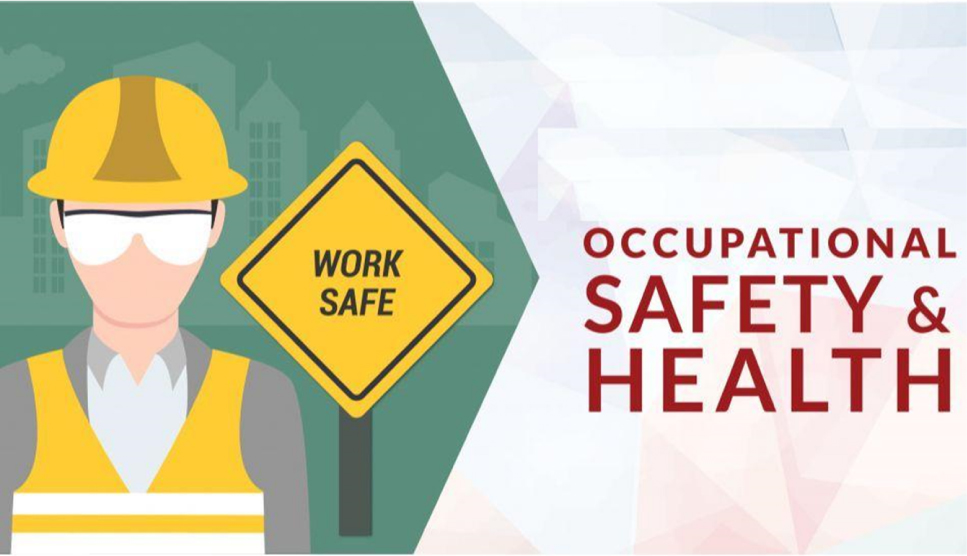|
The COVID-19 pandemic, and its profound impacts on the world of work, underscore just how important Occupational Safety and Health (OSH) is to all of us. The healthcare institutions are overburdened and the perpetual and escalating demand for medical services and human resources has pushed current resources to their edge. This indeed has resulted in cases of workplace safety getting ignored and the country has witnessed unfortunate series of accidents at the hospitals treating COVID-19 patients.
In India, there are over 1.9 million doctors and over 3.07 million registered nursing personnel. These health and social workers are at serious risk of acquiring COVID-19 during the course of their work. Moreover, those workers as well as essential staff in many other sectors have faced increased workloads, longer working hours and reduced rest periods. With the systems crossing their capacities, the risk of they facing the threat of violence and harassment at work is high, with consequences for both physical and mental well-being.
Amongst the many lessons learned from this crisis, is the need for countries to have a sound and resilient OSH system in place, certainly not limited to health sector but an OSH system protecting workers from all sectors is the need of this hour. A system which can build capacity to face future emergencies and protect workers’ safety and health. It is not only important to support the survival and business continuity of institutions and enterprises, but also for protecting the precious human lives.
The protection of workers against sickness, disease and injury related to their work environment has been a central issue for the ILO since 1919. From the onset of the COVID-19 crisis, the principles contained in ILO Occupational Safety and Health standards have shown to be more relevant than ever, especially the principle of prevention.
Investing in these systems enables countries to better face and recover from crises by safeguarding lives and livelihoods, and advancing the protection of workers.
As lockdown measures were lowered early this year and we attempted to resume to work normalcy, we were entrapped into the second wave of COVID-19. It has proven that workplaces can easily become contaminated with the novel coronavirus, exposing workers, their families and communities to the risk of infection.
In addition to the risk of infection, workers in all sectors face additional hazards that have emerged due to new work practices and procedures adopted to mitigate the spread of the virus. Teleworking, for example, has led to ergonomic and psychosocial risks with some 65 per cent of surveyed enterprises reporting that worker morale has been difficult to sustain while working from home.
Faced with an unprecedented public health emergency, governments have taken rapid measures to curb the spread of the virus through public health systems. Actors in the world of work, and particularly in the field of OSH, have been crucial in the emergency response for protecting workers including those who support public health systems. Here, we must appreciate the Indian government’s efforts in prioritizing health workers in the COVID-19 vaccination drive, which has substantially covered the health professionals on priority.
We will need more such strategic steps in future. We reiterate that post this pandemic, there is an urgent need for countries to have a sound and resilient OSH system in place. A system which can build capacity to face future emergencies and protect workers’ safety and health, while supporting the survival and business continuity of enterprises.
The key elements of a national OSH system are set out in ILO’s Promotional Framework for Occupational Safety and Health Convention, 2006 (No. 187). It provides a structure that it required to develop a comprehensive national system. At the top, it begins with the national OSH policy, and then followed by regulatory and institutional frameworks; occupational health services; information, advisory services and training; data collection and research; and mechanisms for strengthening OSH management systems at the institutions and enterprise level to prevent and respond to OSH risks.
Governments, workers’ and employers’ organization in India are promoting adaptation of good practises towards COVID-19 prevention and safe return to work. ILO is also supporting enterprises to establish COVID-19 taskforce, especially MSMEs in the lower tier of the supply chain, including women-dominant home-based and informal workers in select labour-intensive sectors on managing COVID-19 risks.
But we need special attention to ensure that policies and strategies do not discriminate against any workers, and consider those in vulnerable situations including the young, women, disabled and migrant workers, the self-employed and the informal economy. This can be achieved through social dialogue between governments, employers’ and workers’ organizations. It will not just ensure effective implementation of measures to address emergencies such as COVID-19, which require quick but effective action but will also develop trust and transparency. Strengthened respect for, and reliance upon, mechanisms for social dialogue can create a strong foundation for building resilience and encouraging commitment from employers and workers to the necessary policy and practical measures.
COVID-19 has undoubtedly been one of the gravest Occupational Safety and Health challenges the world has ever faced. But, it is also a time to build concerted action plan and commitment of all stakeholders to forge the strong and effective national OSH systems. It is the best way to safeguard the life and health of every worker for years to come.
By Satoshi Sasaki, ILO’s Deputy Director for Decent Work Technical Support team in South Asia and Country Office for India
|



